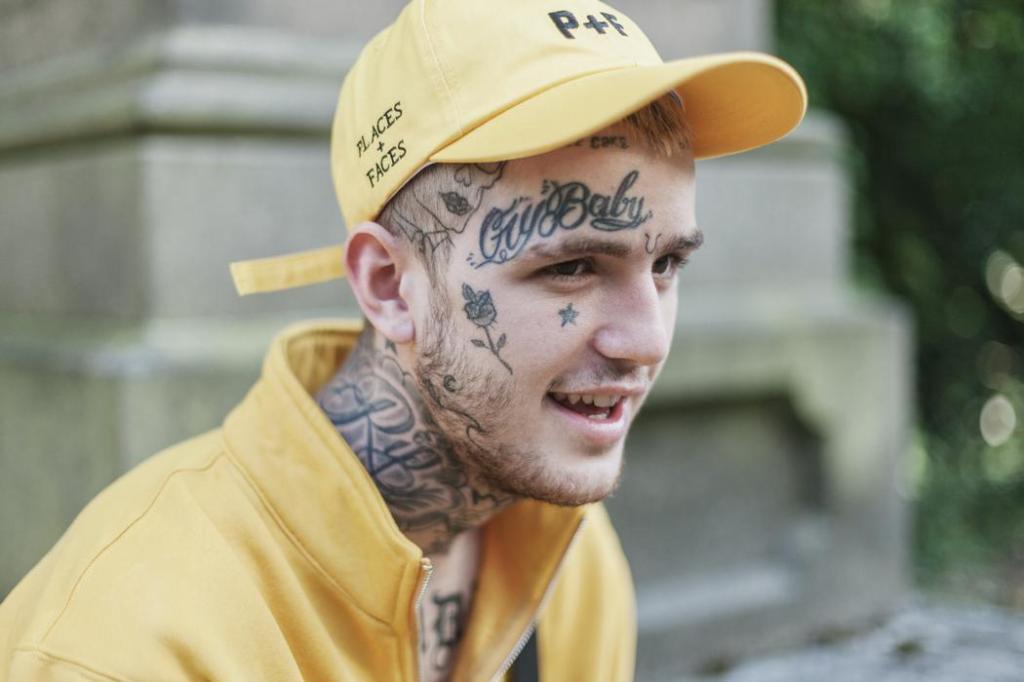The rapper Lil Peep died on Wednesday night (15 November) in Tuscon, Arizona. He was 21.
The news was initially shared by his manager Chase Ortega, who tweeted, “I’ve been expecting this call for a year. Mother fuck” early Thursday morning (he has since made his account private.) Peep’s death was later confirmed by Sarah Stennett of First Access Entertainment, a company which had worked with him since last year. Stennett said, “I do not believe Peep wanted to die. He had big goals and dreams for the future which he had shared with me, his team, his family and his friends.”
Videos by VICE
Born Gustav Ahr on 1 November 1996, Peep grew up in Long Beach, Long Island. He told Noisey back in July that the moniker ‘Lil Peep’ came from his mother, with whom he was especially close: “My mom has been calling me Peep my whole life,” he said. “That’s how I got the name.”
He had an interest in music and fashion from a young age. His brother introduced him to punk music, and he was soon taken by emo, citing bands like My Chemical Romance and Taking Back Sunday as early favourites. His interest in emo became crucial to the music he would make later on, when, aged 17, he moved to Los Angeles. There he joined the collective Gothboiclique, and became a trailblazer known for blending emo and rap.
He is credited with contributing to the creation of a fascinating new sub-genre as divisive as it is exciting, blending emo textures, lyrical themes, and sensibilities with beats and vocal styles more commonly associated with hip-hop. He was a keen songwriter, and, in the words of Jon Caramanica of the New York Times, his creativity made him “one of the most promising artists in the current generation emerging from SoundCloud.”
In January of this year, Pitchfork ran a profile of Peep calling him “the future of emo,” and many credited him with renewing the genre, which had been seen as fading. His debut album Come Over When You’re Sober Part I, was released in August, and he described it as “the best project that I’ve made to date.” By this time, his star had risen quickly, and he was tapped to walk in runway shows, given his arresting appearance – tall, thin, and covered in trademark tattoos.
Over the course of his short career, Peep amassed a large, cult following, and regularly played to sold-out venues filled with teen audiences. Though he thought that the music press at large didn’t necessarily understand his musical project, he knew that his fans did: “the kids get it,” he told Noisey.
Via his music, Peep was particularly open about mental illness and his battles with drug abuse, and his issues were well known. It is thought that his death came following an overdose, though an official cause of death has not yet been announced.
In her statement, issued as a confirmation of his death, Sarah Stennett also noted that she had spoken to Lil Peep’s mother, saying “she asked me to convey that she is very, very proud of him and everything he was able to achieve in his short life. She is truly grateful to the fans and the people who have supported and loved him.”
Update (9:30 PM GMT): Pitchfork is reporting that according to the Pima County Medical Examiner, Lil Peep died of a suspected overdose. However, it will be six to eight weeks until official toxicology results can confirm this report.
Follow Noisey on Twitter.
More
From VICE
-

Google Maps -

(Photo by Scott Dudelson/Getty Images for Coachella) -

(Photos by Witch Club Satan; TruththeBull) -

Seth Ferranti, all images courtesy of him
